| If you were to play a classic board game with Emily Dickinson -- based on word usage in her poetry -- the chosen game would likely be the game of Life and not Monopoly because Dickinson never used the word "monopoly" in any of her poems, but she used the word "life" in 142 different poems. Here's how the vintage games stack up (according to the number of poems in which the words appear): Monopoly: 0 Chess & Checkers: 0 Clue: 1 Scrabble: 1 Concentration: 2 Sorry: 6 Risk: 7 Trouble: 19 Life: 142 |
| The culprit who committed the murder would be Mrs. White, because Dickinson used the word "white" in 25 different poems, and she never mentioned Colonel "mustard" or Professor "plum." Here's the breakdown of the characters' names as used in Dickinson's poetry: Mustard: 0 Plum: 0 Green: 15 Scarlet: 17 Peacock: 1 White: 25 |
*** Dickinson also used the word "wrenched" in one poem and "wrenching" in another.
| Finally, where would the victim have been murdered? "Hall" is used most often in Dickinson's poetry, but I don't think that location is one of the choices for the murder in "Clue"; the hall is just used to move characters around. Therefore, in the traditional game, the murder would have taken place in the "dining room."* Study: 0 Kitchen: 1 Ballroom: 1 Conservatory: 1 Billiard Room: 0** Library 1 Hall: 5 Lounge: 0 Dining Room: 2 |
** "Pool" is used in 10 poems, but never as the game similar to "billiards."
NOTE: Some more modern versions of "Clue" include the cellar as a possible murder site -- and "cellar" was used in 4 different poems.
So there you have it -- in a traditional game of "Clue" -- based on word usage in the poems of Emily Dickinson -- the murder would have been committed by Mrs. White with a gun in the dining room (and in the cellar in an up-to-date version of the game).
For more statistics on word usage in the poems of Emily Dickinson, click HERE.

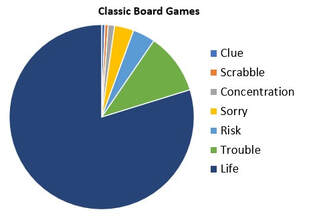
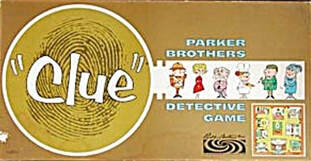
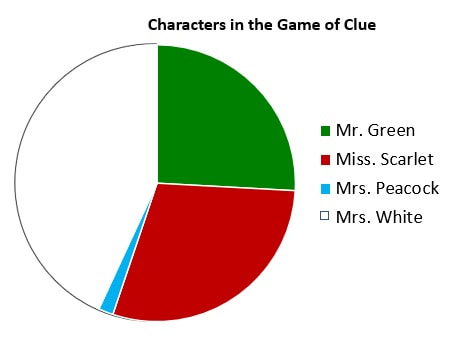
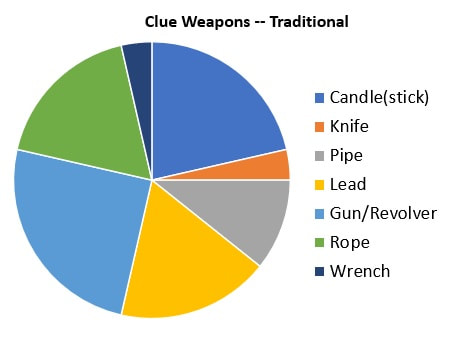
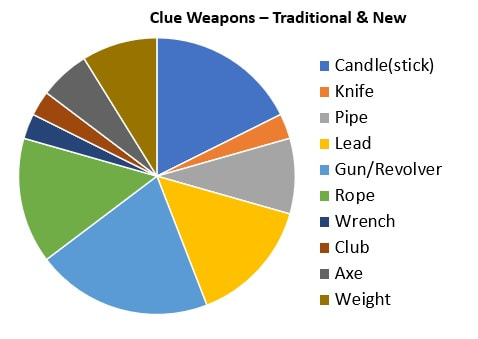
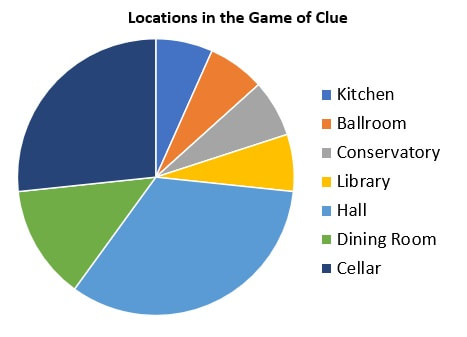
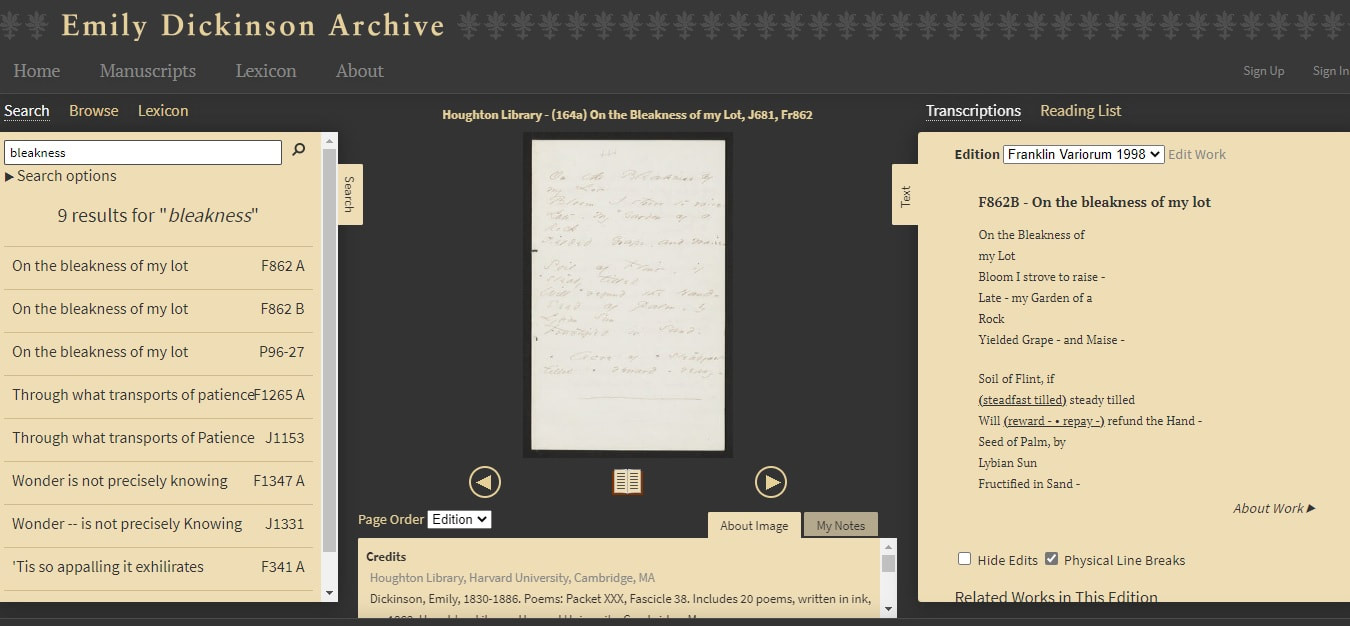
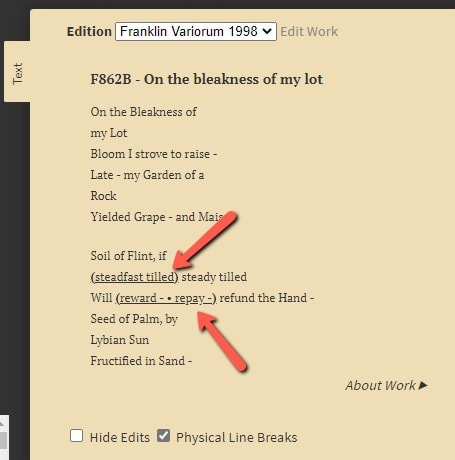
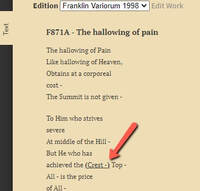
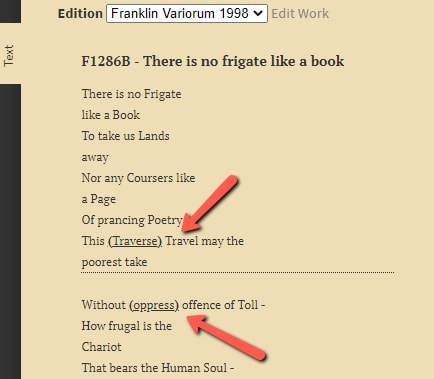
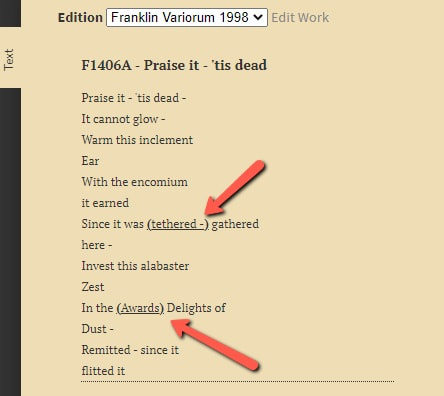
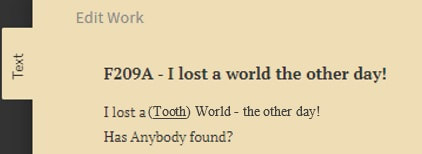
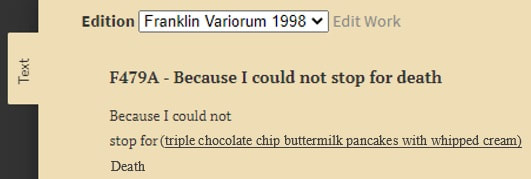
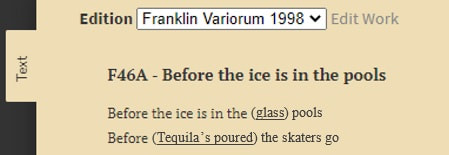
 RSS Feed
RSS Feed
